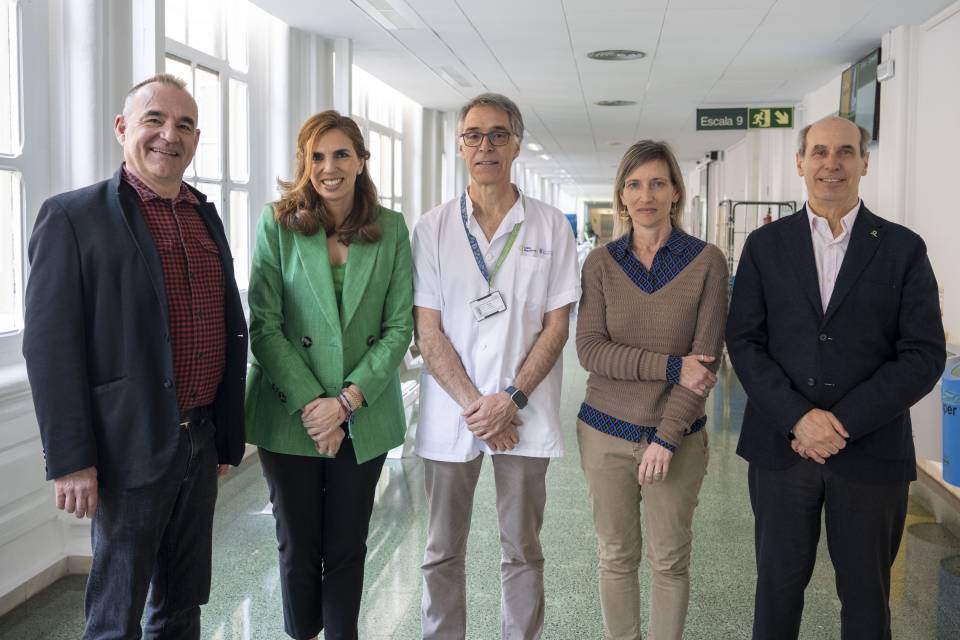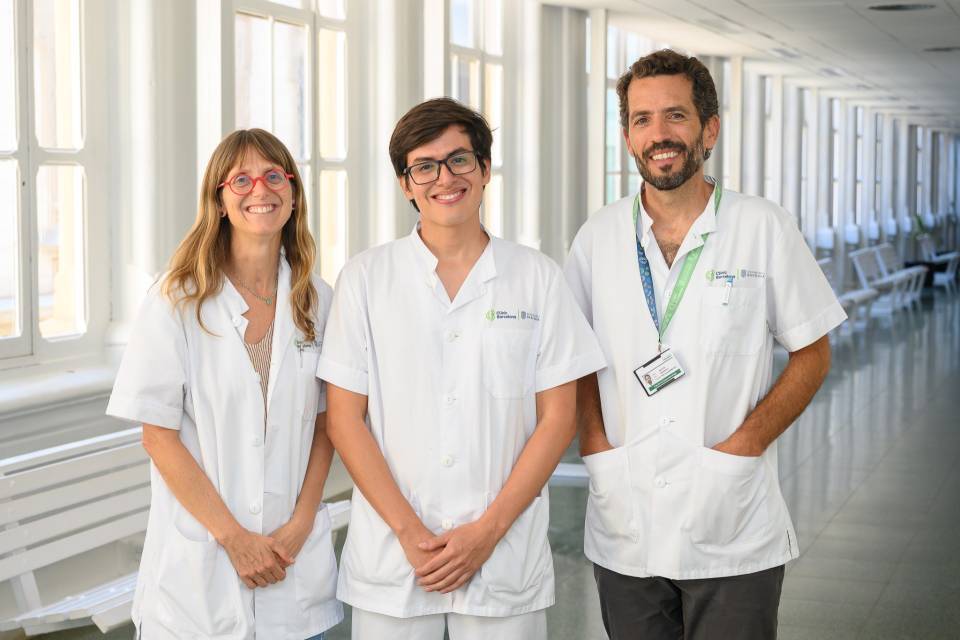Organization - Gastroenterology Service
The Gastroenterology Service is organized into the following units and areas of activity:
-
Enfermedad Inflamatoria Intestinal
This unit, the largest at the national level, is made up of a multidisciplinary team of professionals in gastroenterology and surgery and specialists in radiology and pathology. It has recently received advanced certification in accordance with the benchmark for Standardization of Quality Indicators for Comprehensive Care Units for patients with Inflammatory Bowel Disease.
Colorectal cancer. This area of healthcare is made up of a multidisciplinary team of professionals from gastroenterology, gastrointestinal and liver surgery, medical oncology, radiotherapy oncology, anaesthesia, and radiology. And the following programs have been developed:
- Colon and rectal cancer early detection program. The multidisciplinary nature of the program and the synergies established between the various healthcare agencies in the territory of Barcelona constitute the main asset of this program.
- Colorectal Cancer High Risk Clinic (CAR-CCR). This organization aims to treat, in a global and specialized way, people with a high risk of colorectal cancer based on family factors (polyposis syndromes, Lynch syndrome, colorectal cancer associated with the MUTYH gene, familial colorectal cancer) and/or personal factors (history of colorectal adenomas or colorectal cancer).
This model, a pioneer in our country, is based on the integration and coordination of all the healthcare resources involved in the prevention of colorectal cancer in people at high risk, from primary care to specialized care.
- Program for rapid diagnosis of colorectal cancer. Following the guidelines of the Department of Health of the Generalitat de Catalunya, a program for the rapid diagnosis of colorectal cancer is in operation. Its aims are to shorten the time from diagnosis to treatment, and to involve the coordination of the different levels of healthcare in the area.
Esophagogastric pathology. The members of the Service are part of the multidisciplinary team for the management of esophagogastric cancer, which includes specialists in both gastroenterology and surgery, as well as in oncology, radiotherapy and pathology. The most relevant aspects of this group within the Service are their use of minimally invasive techniques (mucosectomy, submucosal dissection) with regard to the endoscopic treatment of early forms of cancer, and the application of new diagnostic and therapeutic endoscopic approaches in the management of Barrett's esophagus.
Pancreatic Pathology. Affiliated Service members are part of the multidisciplinary committee for the management of neoplastic pancreatic disease. Their goal is to optimize the performance of diagnostic tests, and to combine medical and surgical therapeutic resources. From the endoscopic point of view, endoscopic retrograde cholangiopancreatography and endoscopic ultrasonography have acquired great prominence in their therapeutic aspect, for both the placement of biliary and pancreatic prostheses and the drainage of pancreatic cysts.
Digestive Endoscopy. This Section is at the forefront of the endoscopic diagnosis and treatment of digestive diseases. The participating team members are specialized in the endoscopic treatment of digestive neoplasia (polypectomy, endoscopic mucosal resection, endoscopic submucosal dissection), biliopancreatic pathology (echoendoscopy with puncture and drainage of collections, endoscopic retrograde cholangiopancreatography, cholangioscopy), the study of diseases of the small intestine (capsule endoscopy and enteroscopy), treatment of Barrett's esophagus (radiofrequency) and disease derived from portal hypertension and post-transplant biliary complications (thrombin injection, Argon treatment, biliary stricture dilatation). The Section also works in endoscopy, specializing in Inflammatory Bowel Disease (urgent diagnosis, dysplasia screening and treatment of associated injuries).


